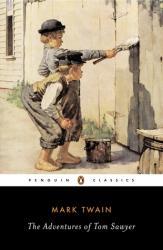
Mark Twain's beloved nineteenth-century novel is a thrill. Tom Sawyer is the story of a boy that everyone can relate to. From being bored in Sunday school to playing pranks on the teacher to running away and playing pirates, Tom Sawyer is full of boyhood adventures. The Adventures of Tom Sawyer is filled with comedy, warmth, and youthful innocence. However, below the surface, The Adventures of Tom Sawyer is about young boys facing the cruel adult world. This novel is truly a classic and can be enjoyed by all ages, especially upper elementary, middle schoolers, and high schoolers.
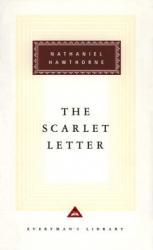
Rich with symbolism and human feeling, the compassionate author leads us to consider deepest plumes of human sentiment. We are artfully led by the hand into the inner corridors of human hearts, where we are taught to stare down passion, shame, despair, revenge and finally courage.
First, we are compelled to walk around in a world where there is no forgiveness. We are removed from the fresh and life-giving promises of scripture to a stale and unrelenting universe, a universe in which once you have sinned in certain ways, you are branded for life. Hawthorne’s world takes the world of Jesus and turns it upside down. Where Jesus welcomed the repentant prostitutes and the reformed tax collectors and had his very harshest words for the proud, exacting Pharisees, in Hawthorne’s world the town’s peoples’ sins of unforgiveness and pride are smugly overlooked.
Hawthorne’s world does to us what all good fiction ought to do: it causes us to shudder. We feel instinctively the cruelty of the sentence placed upon the young woman and the baby, although we acknowledge her sin. This should lead us to praise our God for the forgiveness and grace that is so freely offered us in scripture. As the Pharisees ask Jesus what they should do with the woman caught in the act of adultery (and where, I always wonder, is the man?), we should know his response: “Let him who is without sin cast the first stone.” John 8:7
Yet we come to appreciate the large-heartedness of Jesus all the more as we come to live in the world of Hester Prynne. Hawthorne, understanding the longing that we all feel to be welcomed and loved unconditionally within a society of people, haunts us with the solitary and scorned life Hester Prynne is relinquished to. As we sink deep into the mire of her forlorn pit, our hearts should soar all the more with the blessed promises of our great God:
“Remember that you were at that time separated from Christ, alienated from the commonwealth of Israel and strangers to the covenants of promise, having no hope and without God in the world. 13 But now in Christ Jesus you who once were far off have been brought near by the blood of Christ.” Eph 2:12,13
As we walk around in Hester Prynne’s world, we know what it would be like to be separated from Christ, to be alienated from the commonwealth of Israel, to be cut off from the promises of God. And yet we rejoice, because we know by faith that Hawthorne’s world is a skewed, twisted world, bearing no resemblance to the true community of faith.
Hawthorne’s character Dimmesdale is as unlike to Christ as nearly any man can be. Dimmesdale’s portrayal of failed manhood is so epic, I can scarcely think of another rival in literature. Here we see a man so small, so petty, so devoid of the smallest scrap of courage or courtesy, that he sits back passively allowing a woman to not only care for, love, and instruct his child alone, but also do so while laboring under the unrelenting sorrow of his shame. He sees this woman daily scorned, reviled, despised, belittled, made an object of while he walks around enjoying his position of influence and respect in others’ eyes. The fact that his sin daily eats away at him till his health is completely deteriorated does not make him any less pathetic in my eyes. No, he is the more pathetic for it. For he shows none of the manly dominance over human affairs that God gave to Adam when he blessed him and gave him dominion over the world. Instead, Dimmesdale is a peon, a victim of circumstance, a shadow of man, resigned to say simply “come what may,”
devoid of action and refusing to take responsibility at every turn.
What a striking contrast to our mighty savior. It is the man Jesus Who in all things takes the initiative. Jesus takes the shame for sins He never committed. Jesus stands up and takes our punishment. Jesus bears all our sorrow and our shame. Jesus, though perfect, identified himself with the lowly, with sinners and allowed himself to be crucified in the most undignified and hideous fashion, next to violent criminals. Jesus, instead of leaving a woman to lonely sorrow while he enjoyed respect, became a man of sorrows, well acquainted with grief. (Is. 56)
Is the Scarlet Letter a book for today? Why else does abortion flourish today except that we are plagued with a generation of Arthur Dimmesdales walking our streets? We have everywhere men who will not take responsibility for their actions and protect the children they have carelessly fathered.
Instead, they take their women to the clinic in the shadows and leave them to the abortionist scalpel, which brands hearts with a letter so hot and scarring, only the red-hot blood of Christ will heal.
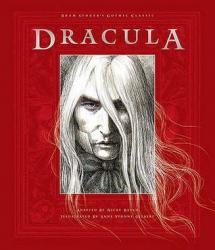
This book is an adaptation to Bram Stoker’s novel, which was designed to make it an easier read for teens. The art is amazing, but the book did not hold my attention very well because the plot is slow to start. I recommend the age to be 13+ because of the word choice used. It is more of a teen/adult book. The book is in 3rd person which makes it easier to connect with the characters because you can get everyone’s perception of the story.
Beware Count Dracula!
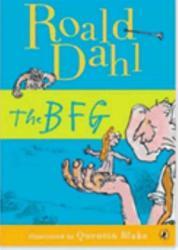
This book is so awesome it's probably my favorite book. It has so much detail that you can imagine exactly what this BFG is going through. Over all i love this book.
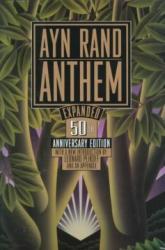
I really enjoyed the book Anthem because of the dystopian future theme that was present throughout the book. The book Anthem follows the life of Equality 7-2521, who finds he is set apart from everyone else in his society.
This society that Equality lives in is structured around the opinion of the majority. Equality is intellectually advanced and strong, both are qualities that his society frowns upon since everyone is meant to be considered “equal” there. I strongly recommend that you read this book if you are a fan of similar books, such as The Giver and The Hunger Games, that focus on future societies.
Reviewer Grade= 9
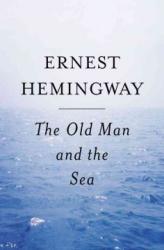
I did not enjoy reading The Old Man and the Sea mostly due to the format it was written in. The Old Man and the Sea is a book that focuses on one of an old man’s most memorable fishing trips where he attempts to kill massive a fish larger than his very ship. One of the main reasons why I did not enjoy reading this book is because of the fact that all of the main characters have names that are revealed throughout the story, but they are never used by the narrator figure. For example, throughout the entire book, Santiago is only referred to as “the old man” by the narrator, even though his real name is known early on in the novel. I also found the book to have a dull plot, focusing on descriptive writing rather than events that occur within the story. Even though I did not particularly enjoy reading this book, there is a lot of symbolism and descriptive writing throughout the novel, which some people may enjoy.
Reviwer Grade= 9
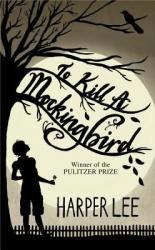
To Kill a Mockingbird by Harper Lee is an amazing story with important underlying themes. I really enjoyed this book. I read To Kill a Mockingbird on my own and then in class, which only made me appreciate the book more. The book explores controversial issues such as prejudice, racism, what it means to be a woman/lady, and growing up, which are all still relevant in today’s society. However, this is not a book for people who enjoy eventful/plot driven stories. To Kill a Mockingbird is more of a character-driven story (in my opinion). Harper Lee’s usage of symbolism, language and setting add to the enjoyment of the book. I could not recommend this book enough. To Kill a Mockingbird is a thought-provoking and classic book that everyone should read before they die.
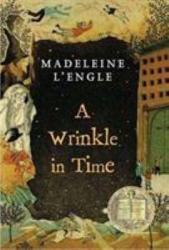
Meg Murry is an outcast. She feels that she doesn't belong anywhere -- not at school, and especially not among her family of accomplished scientists and visionaries. But, when three strange women appear and offer to help her find her missing father, she is whisked away to another world. With the help of her brother Charles Wallace and their friend Calvin, she works to find her father and save Earth from impeding evil. I originally read "A Wrinkle in Time" back in middle school, but decided to reread it before seeing the film, and found that I loved the book just as much as I did the first time around. The writing is charming and clever. The worlds are vast and imaginative. Meg and her brother Charles Wallace undergo compelling character arcs and discover their true purpose along the journey. I have nothing negative to say about this amazing story. To anyone who loves fantasy, sci-fi, adventure, rich characters, and interesting plots, go read this book!
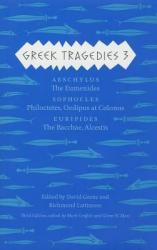
Oedipus at Colonus is part of Sophocles’ Athenian tragedies trilogy called the Oedipus plays. Oedipus at Colonus picks up after the events of Oedipus Rex and follows Oedipus’ life after his exile from Thebes. He starts off wandering in strange lands with his daughter, Antigone, trying to find out where they are. A citizen tells them that they are in Colonus, a sacred Athenian city. The King of Colonus, Theseus, comes to see Oedipus, and Oedipus asks Theseus if he can take refuge in Colonus in exchange for eternal prosperity for his city. Oedipus’ second daughter, Ismene, arrives and informs them that Oedipus’ two sons, Polynices and Eteocles, are planning to go to war with each other for the throne. Oedipus asks for refuge in Colonus, as he knows his sons will come for him due to a prophecy that was told: The city that Oedipus is buried in will forever have good fortune. Oedipus promises that if Theseus offers him his trust and protection, he will bring fortune to Colonus by being buried within its confines. Theseus agrees and him and Oedipus form a great bond. With Oedipus’ death nearing and the conflict in Thebes increasing; Antigone, Ismene, and Theseus must figure out how to solve the situation of Thebes as long as ensure Colonus’ security. I love Sophocles’ Oedipus plays because it connects history with tragedy and makes for one of the most revered plays for its age, dating back to 401 BC. I read the plays using the Dover Thrift Editions as their translations are the easiest for me to grasp and understand.
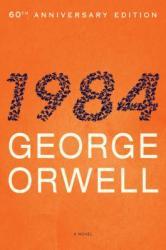
Although the year 1984 has long since passed, the reality created in Orwell’s novel 1984 contain aspects that our society is beginning to show. 1984 follows a society where the world is ruled by 3 superstates: Oceania, Eastasia, and Eurasia, each of which have a totalitarian english socialism government. The government of Oceania has surveillance on every citizen through monitors called telescreens that enable them to hear and see what every person is doing and every citizen is required to have a telescreen in
their homes. This enables them to see if the citizens are committing “thoughtcrime” and if they are, the thought police kidnap the person and erase them from existence. Winston Smith is our main character with a quiet rebellion against the totalitarian government of Oceania. He believes that he is an individual and should be allowed to have his own freedom. As Winston tries to avoid being erased from existence and maintain a romance with the love of his life Julia, the government slowly closes in on his treason. This is one of my favorite novels and a masterpiece by Orwell as it shows how a society with a controlling government creates fear and false order for the citizens. Aspects within the novel are present in our own government today, so who is to Orwell’s predictions aren’t slowly but truly becoming a reality.
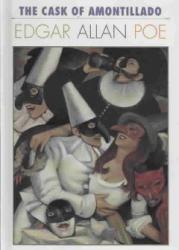
This isn’t a full length book but rather a short piece of writing - the first I read of Poe’s but by far the most entertaining. The piece is set in an unnamed Italian city during the Carnival season and depicts the protagonist, Montresor, inviting Fortunato, a former friend, to a wine tasting in his cellar. Fortunato previously insulted Montresor and this invitation isn’t one of forgiveness, but revenge. The language isn’t difficult to understand as most pieces from the 1800's are and there isn’t any research needed to be done beforehand in order to read this piece. The Cask of Amontillado possesses a dark, morbid theme which is entertaining depending on the audiences interests, for example, if increasingly horrifying character behavior is something that surprises you. I felt a range of emotions from suspicious to terrified throughout the piece and if there are any audiobooks you can get your hands on, that definitely assists in terms of establishing a more realistic setting. When I listened to the audiobook, echoes of their voices and droplets of water dripping from the ceiling of the damp cellar were included to contribute to an overall eeriness.
Reviewer Grade: 11
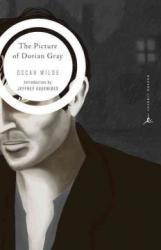
I read this novel on a whim - I had never read any of Wilde before and did not know too much about him as an author apart from the fact he was put on trial and imprisoned during his life. The Picture of Dorian Gray was thoroughly surprising and unexpected. Dorian Gray, at the beginning of the novel, is perceived by Basil Hallward as an individual worth obsessing over, he is infatuated with him and without knowing Dorian yet, the reader is too.
But then the reader is introduced to him physically and I realized he isn't all that. He's almost pompous but somehow clever and he's beautiful. Both Basil and his friend Lord Henry Wotton are influenced to see him more positively by that but I think the fact that Dorian is not tangible to the reader allows us to see him for who he truely is. According to Lord Henry, beauty is worth more than genius is, depicting which friend he prefers over the other. I wanted to sympathize with Basil because he was more sensitive than the others and I felt pity for him as I realized he was not a character anyone particularly cared immensely for. I preferred Basil over both Henry and Dorian because Henry's beliefs appeared rather traditionalist and were more controversial than common and the fact that Dorian was supposed to be a character without any fault was already a warning for me. Honestly, from the title, I did not know what direction the novel was going in from any point during the reading. To clear a few things up, Basil is an artist who paints a portrait of Dorian because he appreciates him in a more aesthetic manner than others who enjoy his company but the portrait appears to change into something more demonic as time goes on symbolizing how awful Dorian was becoming as a person. I mean, I needed to stop reading for a few minutes because I could not believe how little Dorian cared for others but I will admit that the absurdity of it all was entertaining. There is a lot of murder in this book which definitely makes the novel more interesting but then I guess I should also mention not get too attached to some characters.
Reviewer Grade: 11
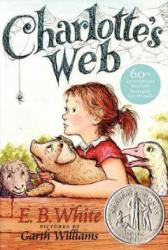
While it may be considered a children's book, Charlotte's Web by E.B. White lives up to its name as a classic. The simple story provides for a light and easy read, while still providing an elegantly woven story. The characters, while not super developed, are jocular and entertaining, and still preserve the sort-of dramatic side of the book. The friendly relationship between Charlotte the spider and Wilbur the pig soon turns into a matter of life and death, allowing for many twists and turns throughout the book. Though simple, the book also has several deeper meanings (I won’t spoil them), allowing for speculation among its audience. The fun in discovering what E.B. White could have meant in just one of the book's lines may very well be the entire hook of the story. Overall, I would recommend this book to anyone, no matter what their age is. There’s always fun to be had in a book, whether it be hidden or minuscule.
Reviewer Grade: 8th
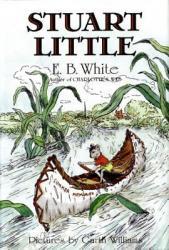
Stuart Little, by E. B. White, is quite the fascinating tale of an adventurous mouse on a quest to find his beloved, lost friend. The book is endlessly entertaining, and Stuart the mouse hooks the reader with his various shenanigans. Rather than developing the side characters, E. B. White strives and succeeds at focusing on peculiar Stuart and amusing the reader. The side plots also fit very nicely into the main story. Overall, I would recommend this book to anyone, as it is a quick, easy, and wondrous read.
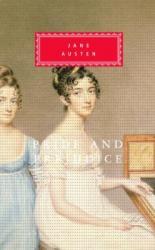
The novel Pride and Prejudice, by Jane Austen, is a 'meh' romance novel. While I may not be a big fan of the genre (which is why I personally find it excruciatingly boring), the book exceeds in describing how relationships were the main influence of wealth and power in Britain around the 1800s. Jane Austen also gives each character an 'okay' backstory. Other than that, the book struggles to keep the reader interested. The characters are bland, their relationships have a very poor development, and some of the well-developed side characters just leave without any sort of sentimental goodbye. The book just seems to be a monotonous lecture with all of the uneventful dialogue, and overall, the book just doesn’t seem to capture the reader. I would maybe recommend this to some hardcore fans of romance, but other than that, I wouldn’t recommend it to anyone. There’s a reason they had to call the movie, "Pride and Prejudice and Zombies."
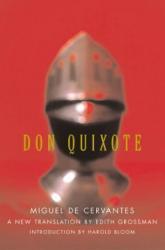
Written in 1605, and translated in at least 50 languages, the novel Don Quixote has often been considered the father of western literature. And for good reason. Coming in at around over 900 pages, this novel is an amazing read. This book follows the hilarious journey of Don Quixote and his portly sidekick, Sancho Panza, as they travel around Spain searching for adventures. I would suggest this book to anyone who enjoys long novels, humor, or anything like Princess Bride.
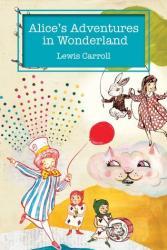
Alice's Adventures in Wonderland, by Lewis Carroll, is a rather peculiar adventure tale filled with all sorts of oddities and misfits. The story begins with the main protagonist, Alice, as she follows the White Rabbit into the infamous rabbit hole. In Wonderland, or so it seems, she meets several creatures all with the strangest backstories and personalities. The story is carefully crafted so that much of the book confuses the casual reader. A great concern for detail is needed to understand the novel and its full meaning. The book shares the complexities and hardships of growing up, in which the Lewis Carroll absolutely nailed. He also shares his negative opinions about the British government through the main antagonist, the Queen of Hearts, who is meant to be a high and powerful monarch, but never does anything. Overall, the book is a great read and it is certainly entertaining to spend some time to pick out the many small details hidden in the book. 8th Grade.
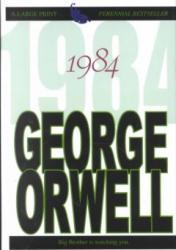
1984, written by renowned author George Orwell, a pseudonym for Eric Arthur Blair, follows the protagonist Winston Smith set in what Smith believes to be the 80s in London. In fact, Smith is not sure of anything anymore, definitely not the exact year or what happened to his family or who the mysterious dictator called Big Brother is or who his state is at war with. Eurasia, right? No, must’ve been Eastasia... All Smith knows are the mottos of each of the ministries that form the government in Oceania, where London is. WAR IS PEACE. FREEDOM IS SLAVERY. IGNORANCE IS STRENGTH. He is told what to think, what to say, and what to do for nearly every part of his life. His government banks on strict organization and dire consequences for disobeying the rules. 1984 is an interesting read that set the bar for dystopian novels, defining inefficient governments from real life examples.
The novel is more realistic being inspired by Orwell’s hatred for totalitarianism and the events of World War II. I recommend 1984 to anyone curious about examining different types of societies, their standards and how those effect the population. The novel is fairly political and examines rebellion, although not as face paced as typical young adult reads. 1984 allows for an in depth examination of the character’s internal conflicts, Winston is one of the more detailed and complex protagonists because there are many parts where he cannot he sympathized with due to his lesser characteristics. The setting is clearly presented in a more world-building way than just giving out straight information. I was especially pleased, surprised, curious, and angry throughout the progression of the story.
Overall, I did enjoy this book more than most others, but the fact that Winston does not form any significant relationships until the second part and is the primary person talking, I was relatively bored during the middle chapters.
Reviewer Grade: 11
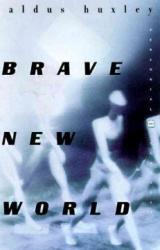
Among one of the first Dystopian genre novels ever published, Aldous Huxley’s Brave New World questions the extent at which technology could potentially control society. Set approximately 632 years after the creation of the Model - T, a World State now controls society with the intent on eradicating personal thinking and individual creativity. With a new system called the Bokanovsky process, the World State utilizes the idea of Henry Ford’s assembly line to produce thousands of nearly identical embryos that will grow up to work for the State. All embryos are conditioned to be in one of the 5 castes: Alpha, Beta, Gamma, Delta, Epsilon; with Alphas destined to control the World State and Epsilons to perform menial labor. When Bernard Marx, Helmholtz Watson, and John decide that something is wrong within this “perfect” society, they take it into their own hands to expose the World State and stop this flawed Utopia. Huxley’s novel, written in only 4 months, is phenomenal because it challenges the ideals of the limits to which technology can override nature. With the novel being published in 1932, Huxley questions practices that were uncommon and unrealistic back then, but are slowly becoming a reality now as our society leans more and more towards technological innovations. I recommend this novel to high school readers, especially those interested in the Dystopian genre, since this is a perfect example of a Dystopian Utopia.
Reviewer Grade: 11
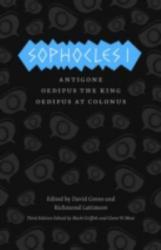
The hero isn’t always epic and won’t always have a happy ending, sometimes he may face a tragic event and meet his downfall. Sophocles Athenian tragedy Oedipus Rex, or Oedipus the King, is a phenomenal play written and first performed around 430 B.C. The play follows the story of Oedipus, a man who became the King of the city Thebes by solving a riddle and defeating a sphinx that was threatening the city and then marrying the queen of Thebes, Jocasta. One day, when Thebes is suffering from a catastrophic plague, Oedipus sends his brother-in-law Creon to an oracle to find out how to stop the plague. Creon returns telling Oedipus that the plague will cease if the killer of the previous king, Laius, is found and exiled. Little does Oedipus know, he is Laius’s killer. Before Oedipus was born, a prophecy was told to Jocasta that her son would kill his father and marry his mother, and so she sent her son out to be killed in the mountains. That boy was Oedipus, and as the prophecy stated, he has returned to Thebes unknowingly to fulfill that prophecy. I love this Greek play by Sophocles because it is one of the first pieces of literature that tells the story of the “tragic hero” and his downfall. I recommend this play to all, but more advanced readers as the translation is also a bit complex.
Reviewer Grade: 11





 Ruth Holley Library will be temporarily closed for approximately one week starting Mon., Dec. 2 to complete roof repairs.
Ruth Holley Library will be temporarily closed for approximately one week starting Mon., Dec. 2 to complete roof repairs.